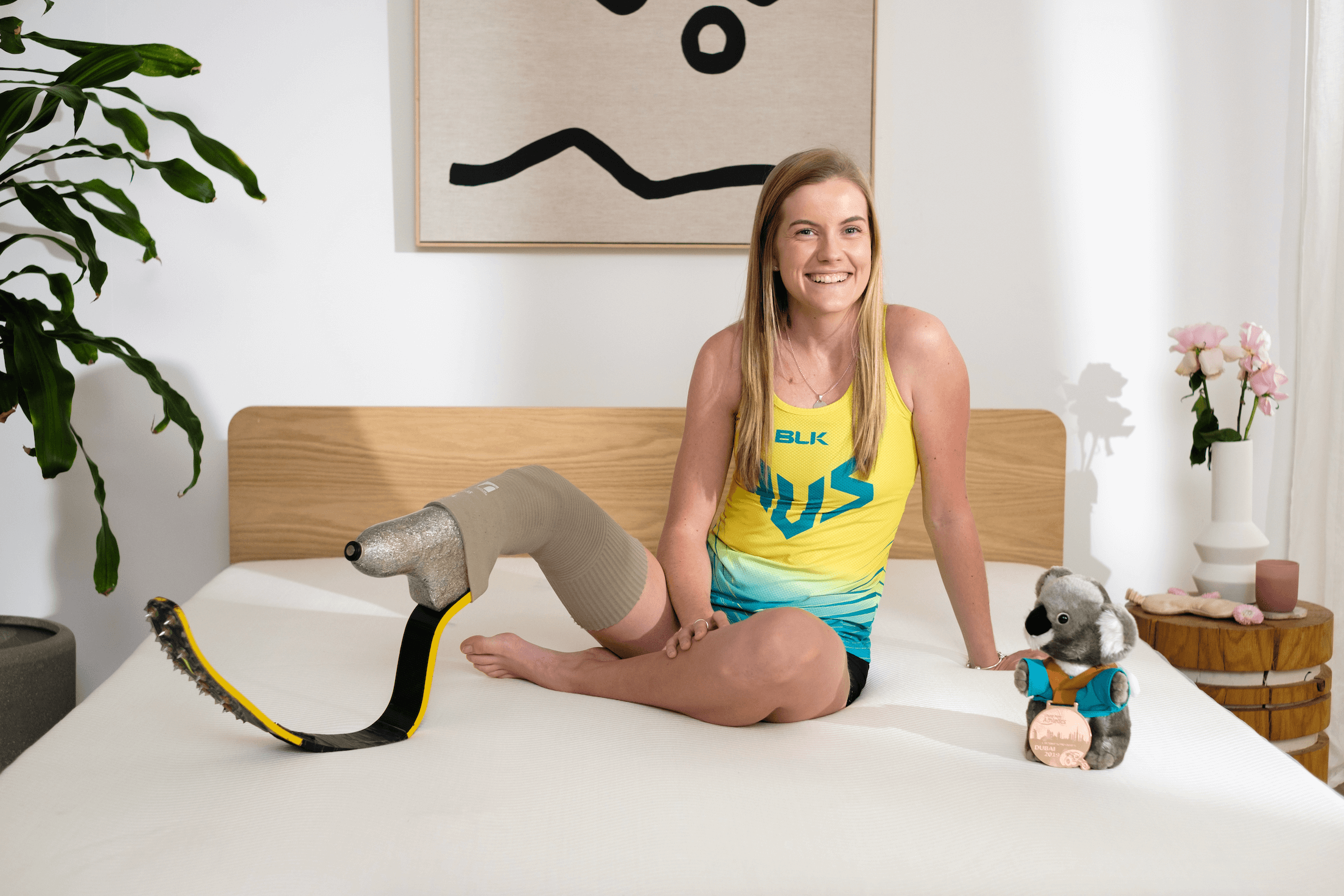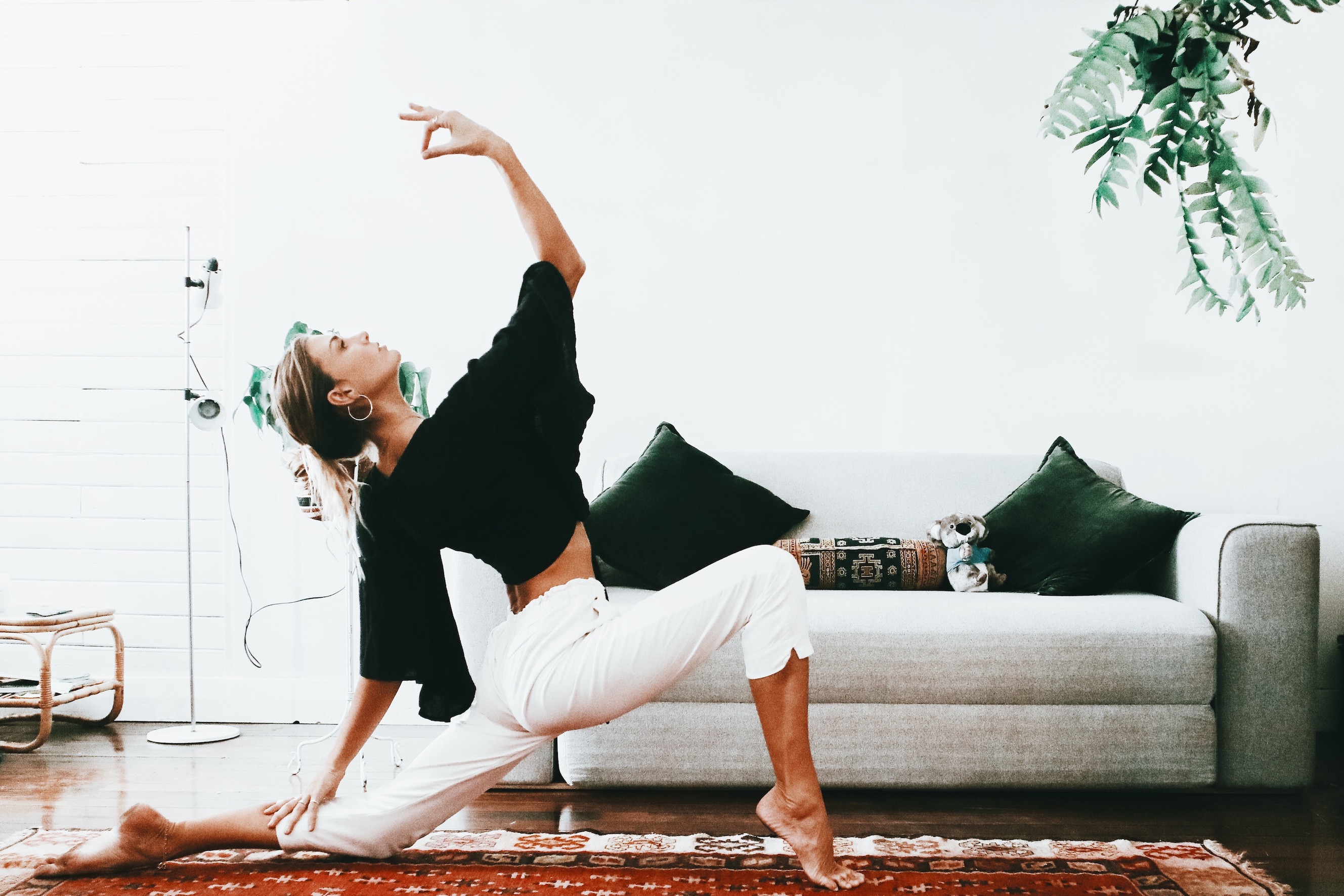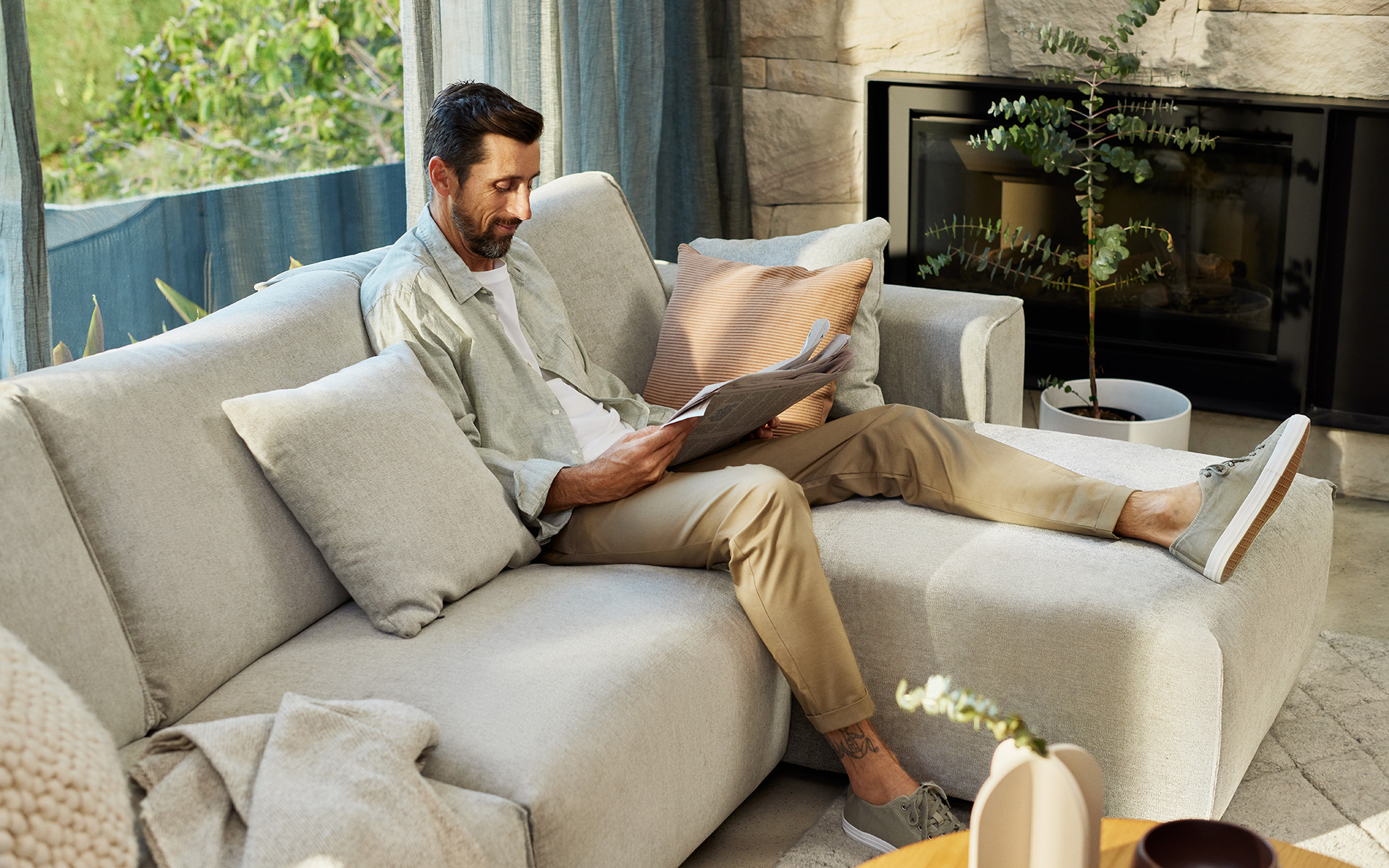The Aussie Paralympians Games couldn’t have come at a better time.
For 16 days, the world was brought together—on the track, in the pool and on our couches—and we were finally able to be a part of a global event that allowed us to focus on celebration, rather than the other ‘C-word’.
Thankfully, it’s not over yet! The Tokyo 2020 Paralympic Games are up next, with plenty more feats of human awesomeness to come.
To coincide with this year’s Paralympics, we’re kicking off a little something of our own. Comfy Convos is our brand new series where we sit down with Aussie Paralympians superheroes on how to find comfort within yourself and at home as well as their most treasured superpower—sleep.
When it comes to athletic performance, a good night’s sleep is essential to overall health and wellbeing. It should come as no surprise that more quality sleep, or extended sleep, can benefit athletes, their recovery, and their performance. For example, a Stanford study of men’s basketball players who extended their sleep to 10 hours a night found they ran faster, shot better by at least 9% and reported improved physical and mental wellbeing. (via Sleep Foundation)
We got comfy with three Aussie Paralympians who will be representing Australia at the Tokyo 2020 Summer Paralympic Games to learn about the important role sleep plays in their recovery and road to victory.
Sarah Walsh
Sarah remembers watching the Beijing Paralympics on the TV back in 2008, sitting at home with her family. Then and there, she had no idea what sport she wanted to do, or what sport she’d be good at. She just knew that she wanted to put on the green and gold and represent Australia.
Fast forward and Sarah is representing Australia as a Paralympic long jumper—her second time going for gold after a successful bronze win in the 2016 Summer Olympic Games Rio.
When it comes to rest, Sarah knows the impact of a good night’s sleep on her performance.
“A good night’s sleep helps me recover quicker, but also makes training a lot easier. Without it, I do think my performance is impaired or it’s not as good as it should be.”
Michael Roeger
Michael always wanted to be the best at something growing up and once he knew that it wasn’t going to be AFL, he committed himself to running.
After a primary school visit from former Paralympian, Neil Fuller, who told him he could one day go to the Games, Michael has had his eyes on the gold, and despite many obstacles, hasn’t looked back.
This year, Roeger recorded his fourth consecutive marathon world record in the T46 class with a time of two hours, 18 minutes and 52 seconds.
How is he able to get comfortable with the uncomfortable?
“I guess comfort and performance go together. You want to be relaxed when you’re comfortable. You want to know that you’re resting and your body’s recovering. So if you can do that in a comfortable spot, you’re going to be able to get up the next day or that afternoon and better run fast and recover.”
Madison de Rozario
Madison de Rozario got her tendency to break the mould from her mum, continuing to take the world by storm with her prowess on the track and her important message on identity.
With three Paralympic silver medals and 10 World Championships medals now under her belt, the reigning women’s 800m T54 world champion, is ready to bring it home in Tokyo.
“Sleep is, you know, the most important form of recovery that there is. And it’s something that I’m definitely not the best at doing… I think how you view the world is seen in such a brighter light if you’re able to actually get that.”



